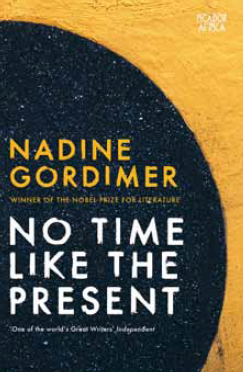Yesterday we reported on the release of the first issue of Prufrock, a new literary magazine, which features an article by Anton Harber on JM Coetzee and Nadine Gordimer’s opposing reactions to Salman Rushdie’s cancelled visit to South Africa in the 1980s. Today, we bring you an article by Harber, published online by The Guardian’s Africa Network, on this topic.
Anton Harber describes how in 1988 the Weekly Mail was organising a Book Week themed “Censorship under the State of Emergency”, with Salman Rushdie set to be the main attraction, in discussion with JM Coetzee and Nadine Gordimer. However, a week before the event, Salman phoned to inform them of the death threats against him due to his criticism of the Qur’an in his book The Satanic Verses.
After a meeting between Muslim leaders, the anti-apartheid writers’ union, Cosaw, and Weekly Mail, Cosaw withdrew their support of Rushdie’s visit to South Africa. Gordimer, as Cosaw’s representative, “phoned London to convey the view that, to avoid violence and division within the liberation movement, he [Rushdie] should not come”.
At the Book Week, Gordimer and Coetzee took to the stage alone and Coetzee lambasted the Weekly Mail, the booksellers and Cosaw for their decision, which, Harber says, meant “by implication” that he was also criticising Gordimer.
Harber quotes some of the harsh words spoken by Coetzee and what Gordimer said in her defense. He writes that Coetzee, “ended with a powerful questioning of the values of the liberation struggle, one which resonates powerfully today”.
Harber goes on to put the incident into context with threats to freedom of expression today:
It started on a Thursday midday, when the organiser of the Weekly Mail Book Week put the phone down, walked across the newsroom and interrupted me and my co-editor. “I think we might have a problem,” she said. It was October 1988 and the “problem” was Salman Rushdie, due to arrive a week later to headline the event. “He says his book has been banned in India, he is getting death threats,” she said. “I asked him what he wrote about and he said, ‘I ripped into the Qur’an’.”
Ours was a small, anti-apartheid newspaper, the Weekly Mail. Gail Berhmann was an artist who was organising our annual literary event, with Rushdie billed as this year’s star guest.
We had other problems too. A few months earlier, we had received a five-page letter from the government warning that we would be closed down under State of Emergency regulations if we continued to muster support for revolutionary organisations and foment feelings of hatred for the security forces. Shortly after that they closed another “alternative” newspaper, the New Nation, for 13 weeks, and we thumbed our noses at them by running articles New Nation had intended to publish under the front page headline “What New Nation Would Have Said”.
Book details
- Diepsloot by Anton Harber
Book homepage
EAN: 9781868424214
Find this book with BOOK Finder!
eBook options – Download now!
-
eBook: Diepsloot by Anton Harber
![LWB]()
eBook type: ePub
EAN: 9781868424221
![ePub]() Download this eBook at LittleWhiteBakkie.com
Download this eBook at LittleWhiteBakkie.com
- The Childhood of Jesus by JM Coetzee
Book homepage
EAN: 9781846557385
Find this book with BOOK Finder!
- No Time Like the Present by Nadine Gordimer
EAN: 9781770102590
Find this book with BOOK Finder!
- Joseph Anton: A Memoir by Salman Rushdie
Book homepage
EAN: 9780224093972
Find this book with BOOK Finder!
- The Satanic Verses by Salman Rushdie
EAN: 9780963270702
Find this book with BOOK Finder!
Images courtesy Contrary Magazine and Britannica









 Download this eBook at LittleWhiteBakkie.com
Download this eBook at LittleWhiteBakkie.com